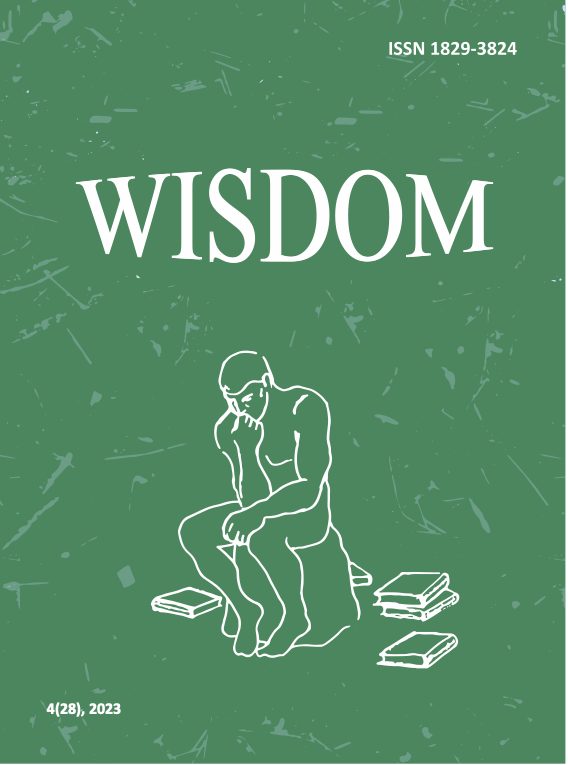Change And Variability Of Phenomena In Complex Social Systems
DOI:
https://doi.org/10.24234/wisdom.v13i2.276Keywords:
Social System, Social Change, Invariance, Variability, Civilization Matrix, Order Parameter, Social-cultural ComponentAbstract
The discourse of chaos theory is used in the description of non-linear processes of social change. Comparing to the mainstream theories of the linear pattern, chaos theory shows significant expansion of the heuristic capabilities in the interpretation of asynchrony and polyvariance of the observed phenomena. A methodological separation of predictability and determinism in the study of socio-dynamics has been carried out. The circumstance that determines the formation of the corresponding attractors is the invariant components of the civilization matrix of society. The sociocultural factor, together with the activation of negative feedbacks, is decisive in the problem of absorption by the system of new information, determining the methods and limits of the reception of innovations. In part of the study of the relative homeostatic state of the system in socio-dynamic and for a detailed analysis of the order parameters, the set of which is unique for each specific cultural type, it recommended to use as a complement research tool the civilizational approach explaining local specificity.
Downloads
References
Bendix, R. (1967). Tradition and Modernity Reconsidered. Comparative Studies in Society and History, 9(3), 292-346.
Bendix, R. (1973). State and Society: A Reader in Comparative Political Sociology. Berkeley: University of California Press.
Danilevskii, N. (2013). Russia and Europe: The Slavic World’s Political and Cultural Relations with the Germanic-Roman West. Bloomington: Slavica Publishers, Indiana University.
Darendorf, R. (1990). The Modern Social Conflict. An Essay on the Politics of Liberty. Berkeley: University of California Press.
Eisenstadt, S. (1987). Macro-Sociology and Sociological Theory – Some New Directions. Contemporary Sociology, 16(2), 602-609.
Haken, H. (1983). Synergetics, an Introduction: Nonequilibrium Phase Transitions and Self-Organisation in Physics, Chemistry, and Biology. (3rd rev. enl. ed.). New York: Springer-Verlag.
Jaspers, K. (1953). The Origin and Goal of History. New Haven, CT: Yale University Press.
Luhmann, N. (1986). The Autopoiesis of Social Systems. London: Sociocybernetic Paradoxes. London: SAGE Publications.
Luhmann, N. (2012). Theory of Society. (Vol. 1.). Stanford, CA: Stanford University Press.
Parsons, T. (1966). The Structure of Social Action: A Study in Social Theory with Special Reference to a Group of Recent European Writers. New York, London: The Free Press, Collier-Macmillan Limited.
Parsons, Т. (1964). A Functional Theory of Change. In Etzioni A. (Ed.), Social Change: Source, Pattern and Consequence (pp. 83-97). New York: Basic Books.
Pogosyan, V. (2008). Social’naya modernizatsiya: strategiya vyzhivaniya (Social Modernisation: Survival Strategy, in Russian). Moscow: Institute of Scientific Information on Social Sciences, Russian Academy of Science.
Pogosyan, V. (2018). Philosophies of Social Behavior Research: Meta-Analytic Review. Wisdom, 11(2), 85-92. https://doi.org/10.24234/wisdom.v11i2.212.
Prigogine, I. (1990). Time, Dynamics and Chaos: Integrating Poincare’s Non-Integrable Systems. Centre for Studies in Statistical Mechanics and Complex Systems at the University of Tex-as-Austin, United States Department of Energy-Office of Energy Research, Commission of the European Communities.
Sorokin, P. (1970). Social and Cultural Dynamics. Boston: Porter Sargent Publishers.
Sorokin, P. (1975). Hunger as a Factor in Human Affairs. Gainesville: University of Florida Press.
Spengler, O. (2006). The Decline of the West. New York: First Vintage Books.
Toynbee, A. (1972). Study of History. Oxford: Oxford University Press, Thames and Hudson Ltd.
Wallerstein, I. (2004). World-Systems Analysis: An Introduction. Durham, NC: Duke University Press.
Weber, M. (1978). Economy and Society: An Outline of Interpretive Sociology. Berkeley: University of California Press.
Downloads
Published
How to Cite
Issue
Section
License
Creative Commons Attribution-Non-Commercial (CC BY-NC). CC BY-NC allows users to copy and distribute the article, provided this is not done for commercial purposes. The users may adapt – remix, transform, and build upon the material giving appropriate credit, and providing a link to the license. The full details of the license are available at https://creativecommons.org/licenses/by-nc/4.0/.















